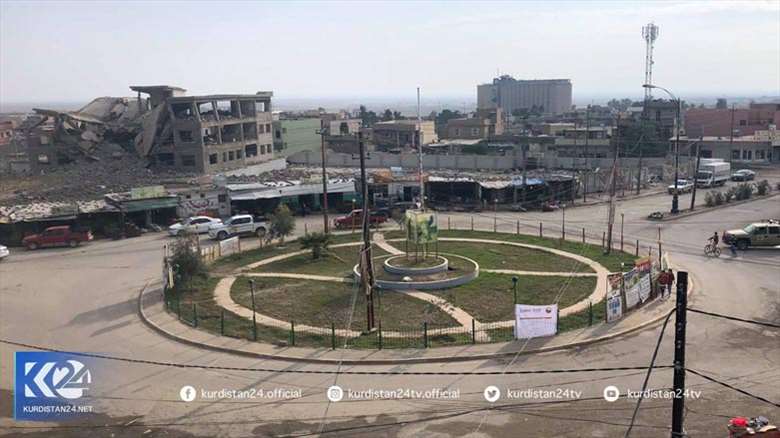Baghdad declares Sinjar free of armed groups as joint plan with Erbil is carried out
Declares Sinjar free of armed groups as joint plan with Erbil is carried out

ERBIL (Kurdistan 24) – The Iraqi Joint Operations Command, which coordinates the nation's security forces, announced on Thursday that the disputed district of Sinjar (Shingal) was clear of all "armed manifestations" as a plan is implemented that would "normalize" the situation in the embattled area where multiple militias have been operating in recent years.
Iraqi forces were deployed within the framework of an agreement signed between Erbil and Baghdad in October to restore stability in preparation for the return of tens of thousands of mostly Yezidi (Ezidi) former residents who were displaced when the Islamic State took control of Shingal in 2014.
Read More: KRG and Baghdad reach administrative, security agreement on Sinjar
A crucial part of the plan is to expel such fighters, primarily those associated with the Iranian-backed Popular Mobilization Forces (PMF) and the Kurdistan Workers' Party (PKK), a group engaged in a decades-long conflict with Ankara over Turkish rights in Turkey.
Kurdish Peshmerga forces, which had been in charge of security in many such areas until they were pushed from them by Iraqi forces and PMF militias in Baghdad's hostile response to the Kurdistan Region's 2017 independence referendum.
On Monday, Baghdad deployed additional security forces to Shingal as part of the agreement's second phase.
Read More: Sinjar Agreement: Baghdad sends reinforcements as residents await 'third phase'
The official Iraqi News Agency quoted the spokesman for the Joint Operations Command, Tahsin al-Khafaji, who said that "the agreement that took place between the federal government and the regional government stipulated that the federal forces would hold the land and impose security in Shingal district."
An early visible effect of the plan's rollout came when Baghdad deployed four brigades of federal police to the area as far as the Syrian border, as part of the initial implementation of the agreement. Police had soon removed flags of various armed factions that had been prominently displayed across the city.
Al-Khafaji pointed out that the local police are deployed in the city center, while the Federal Police and Border Guard forces are responsible for outlying areas and border security.
Iraqi forces reportedly faced no issues with any armed factions in carrying out the security program, which has strong local and international support.
"There is a great effort made by the government and the Joint Operations Command, in consultation with some groups of the PKK, to facilitate the situation for implementing the agreement between the two sides, and the city is now free of all armed manifestation" Al-Khafaji added.
He indicated that the Nineveh Operations Command, which manages the provincial security that includes Shingal, is working with both the national Joint Operations Command and the Peshmerga to impose security.
About 20 thousand militants belonging to seven different factions are thought to have been recently stationed in Shingal. The agreement stipulates that these groups move at least five kilometers outside the city. Also, no flags or banners other than the Iraqi flag may be raised over the city’s buildings.
Editing by John J. Catherine